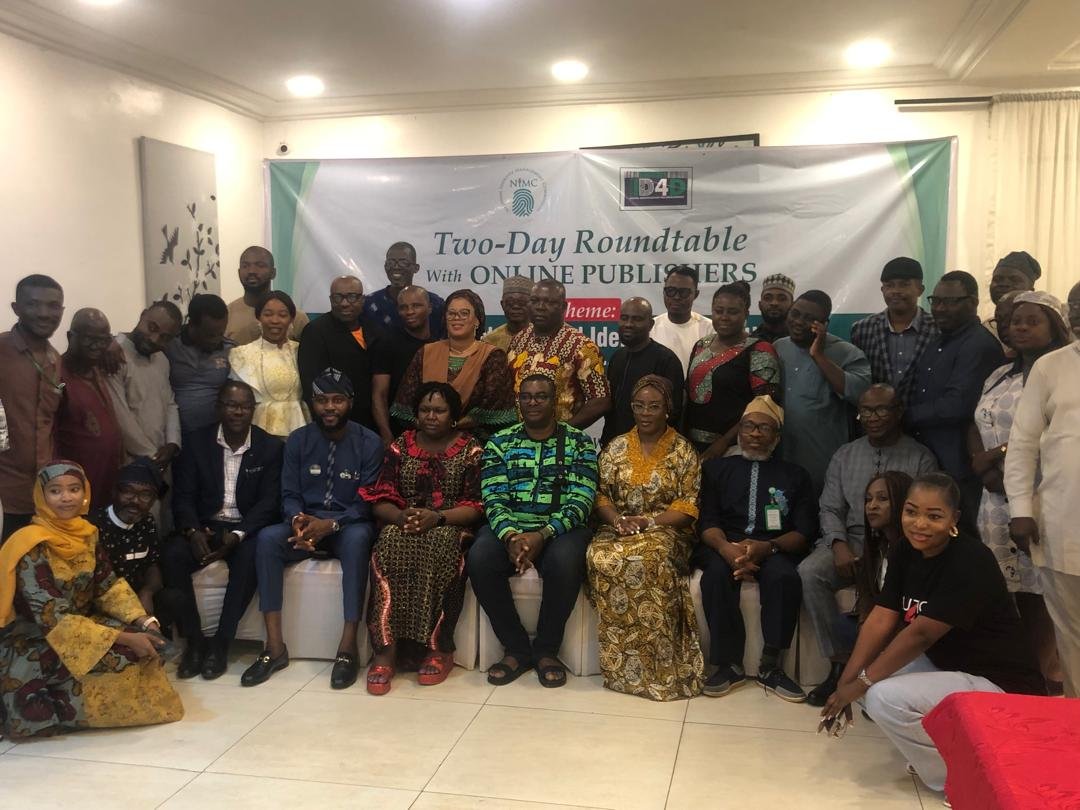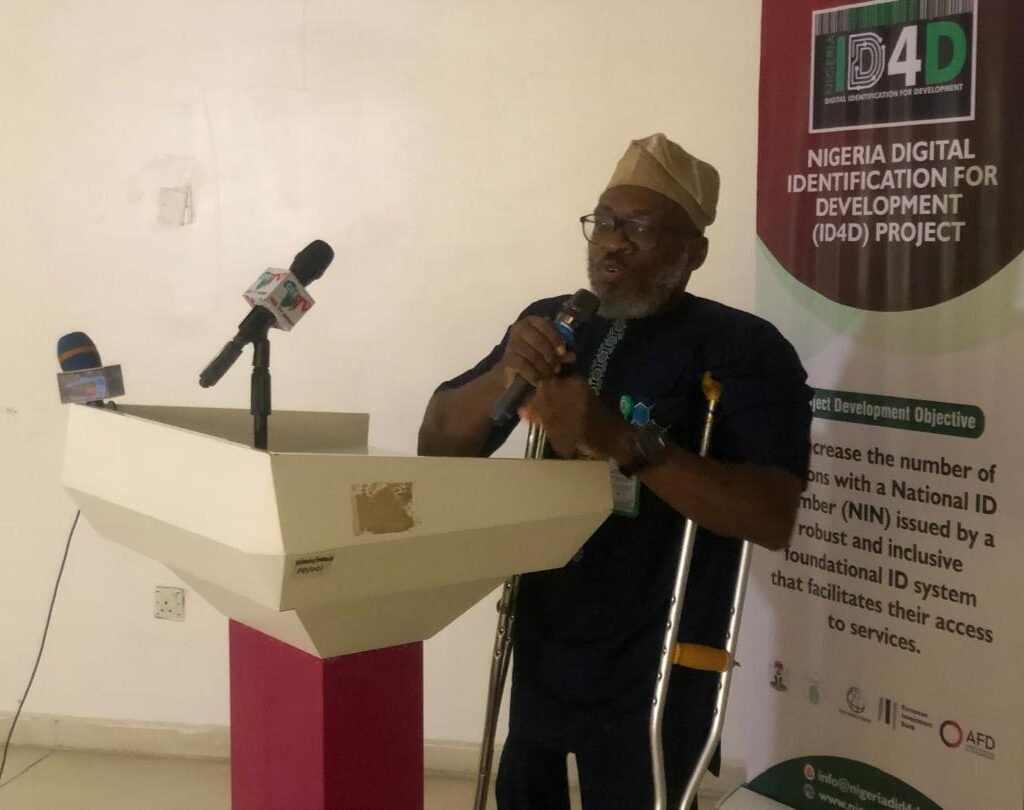
By Ameh Gabriel
The National Identity Management Commission (NIMC) is set to roll out a new and improved general-purpose digital identity card by October 2025, marking a major milestone in Nigeria’s digital identity ecosystem. This was revealed during a two-day media roundtable with online publishers and journalists, organized by NIMC to foster trust and collaboration in digital identity discourse.
Speaking during a special media interview at the event, Dr. Alvan Ikoku, who represented the Director-General/CEO of NIMC, Engr. Abisoye Coker-Odusote, clarified that the Commission is introducing a revamped General Multi-Purpose Card (GMPC), which will serve as a token of identity and a tool for accessing various government and private sector services.

“The core digital identity, the National Identification Number (NIN), has always been active,” Dr. Ikoku stated. “However, the general multi-purpose card suffered setbacks due to sustainability issues. With this October rollout, we are not just relaunching it we are transforming it into a powerful enabler for inclusion, finance, and access.”
Card Features and Use Cases
Though the Commission withheld full details on the card’s features until its official unveiling, Dr. Ikoku hinted at some critical capabilities. These include embedded wallets for government subsidies, support for farmers and credit schemes, and direct benefit transfers to verified individuals.
“It’s not just about identification,” he added. “This card can help a farmer receive input support, a student get scholarship credits, or a citizen receive social protection funds.”
The card will be available at banks and through key government partner agencies, such as the Federal Ministry of Agriculture and Food Security. While not mandatory, it complements the mandatory NIN and will be necessary for certain services in banking, telecoms, and government transactions.
Non-Nigerians, particularly legal residents, are also eligible to receive a version of the card, though it does not confer citizenship.
Cost and Accessibility

Acknowledging public concerns, Dr. Ikoku confirmed that the card will come at a cost but one that is affordable and inclusive. “Yes, there are infrastructural and maintenance costs, but this is not about revenue generation. It’s about service delivery and national development,” he assured.
The requirements for obtaining the card are minimal: possession of a valid NIN and completion of a straightforward verification process.
Infrastructure Overhaul to Strengthen Identity System
On the sidelines of the roundtable, NIMC’s Head of Software and Biometrics, Mr. Olushola Amusrawatye, presented a technical overview of the Commission’s ongoing infrastructural overhaul, which aims to boost performance, security, and reliability.
Key highlights of the overhaul include:
Distributed high-availability systems for faster ID issuance and verification
Strengthened cybersecurity frameworks including firewalls, encryption, and multi-factor authentication
Expanded self-service platforms for rural, diaspora, and mobile users
Integration with national economic initiatives and ease of doing business strategies
Enhanced data integrity through robust validation and anti-fraud tools
This upgrade is in line with the Renewed Hope Agenda of the Federal Government, aiming to position Nigeria’s identity system as a strategic lever for digital transformation.
SERVICOM’s Oversight: Building Trust through Accountability
In another key presentation, Mrs. Florence Oloruntade, Director of SERVICOM at NIMC, underscored the Commission’s commitment to grievance redress and quality service delivery.
SERVICOM plays a critical oversight role within NIMC, ensuring:
Prompt complaint resolution through hotlines, email, and physical channels
Regular audits and performance tracking to uphold service charters
Training of frontline agents to ensure ethical conduct and professionalism
Use of data-driven insights to detect and correct systemic service failures
“Grievance redress isn’t just about complaint handling,” Mrs. Oloruntade noted. “It’s a vital feedback loop that shows Nigerians that NIMC listens, learns, and improves.”
SERVICOM is also helping implement technologies such as NINAuth (OTP-based verification) and Digital Tokens, which simplify identity verification and protect user privacy.
With the planned rollout of the new digital identity card in October, combined with critical infrastructure modernization and accountability frameworks, NIMC is redefining Nigeria’s identity management ecosystem. The initiative promises not only to enhance access to essential services but also to drive digital inclusion, transparency, and national development.
As Nigeria transitions into a digital-first economy, these reforms affirm the Commission’s mission to deliver a secure, inclusive, and citizen-centered identity infrastructure one that empowers every Nigerian.







